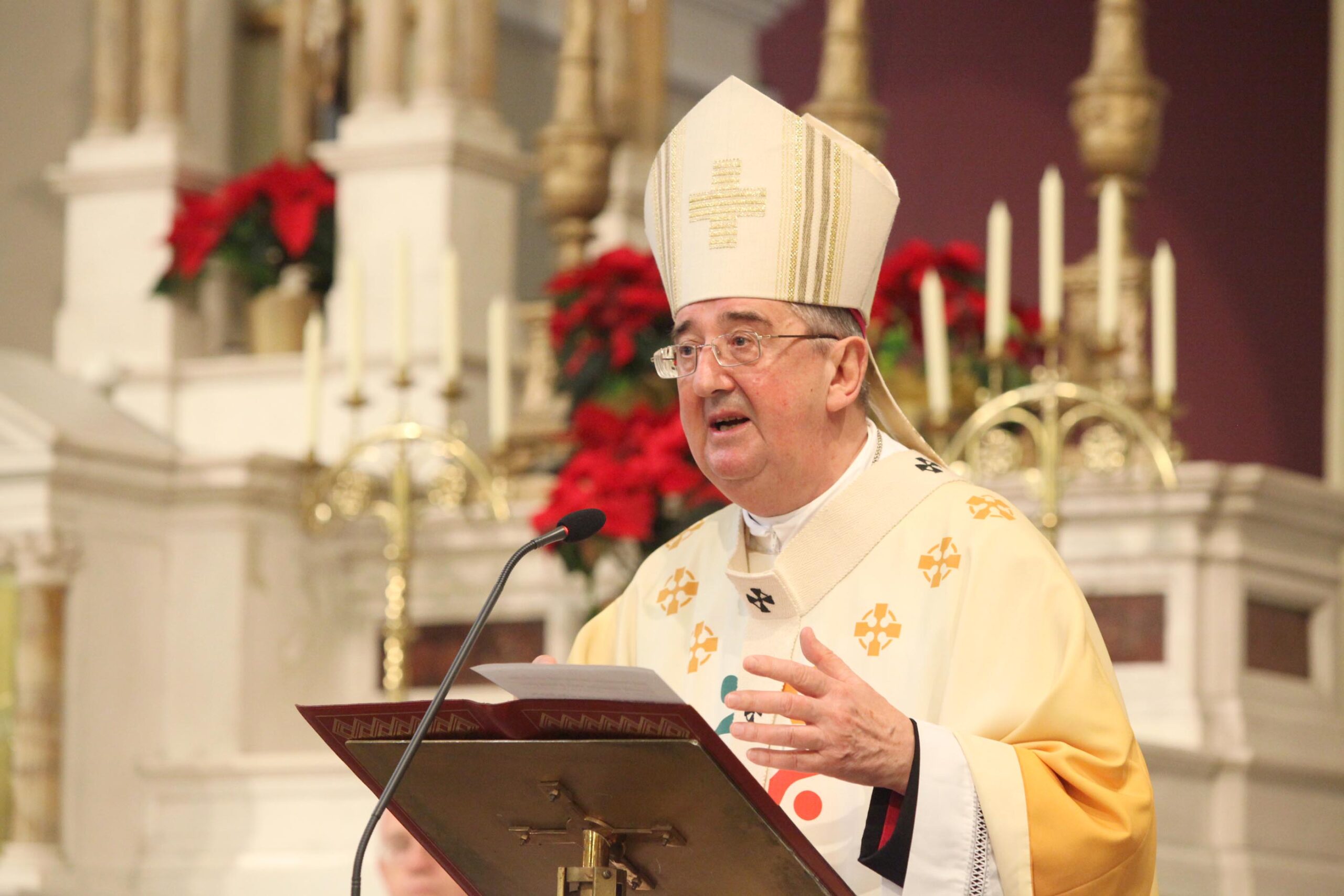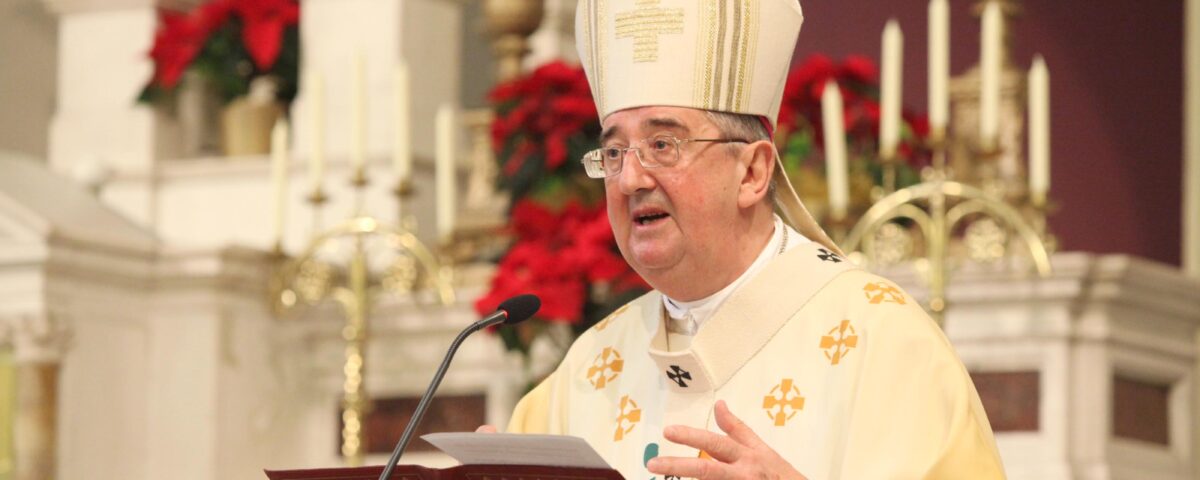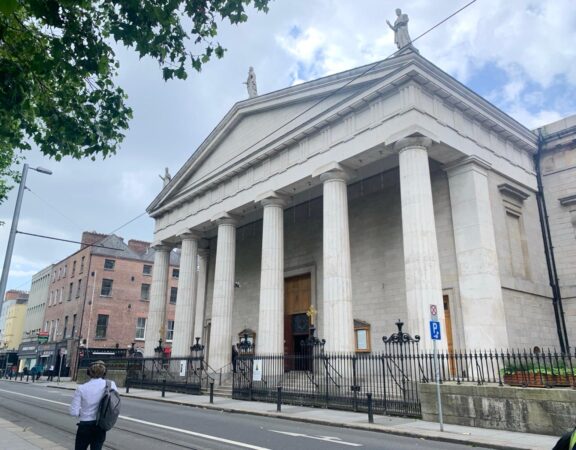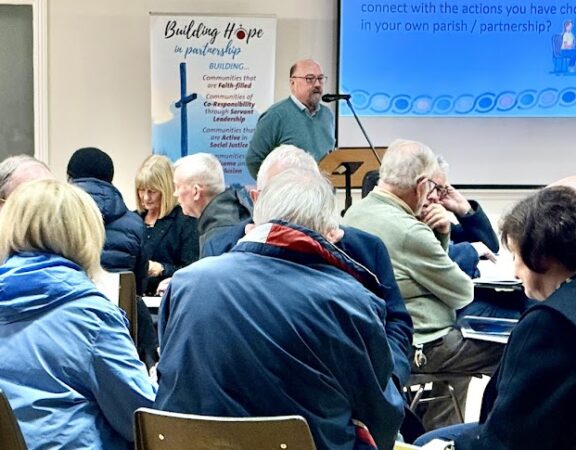Feast of the Epiphany
Saturday, January 6, 2024
Homily of Archbishop Emeritus Diarmuid Martin
St Mary’s Pro-Cathedral, Dublin
We celebrate today the Feast of the Epiphany. Most of us will have fond memories from our own homes of the figures of the three wise men who were kept on the fringes of the family crib for most of the twelve days of Christmas and who were then finally introduced into the crib alongside the child Jesus on the Feast of the Epiphany.
To us in what we call the West, even today, colourful figures from the Orient have their fascination, representing something different, enriching and fascinating culturally and spiritually. Even today for us who live in the rational, secularised world of the West, the different manner of the search for God and of the experience of God that is typical of the Orient leaves us fascinated and mystified.
Epiphany means manifestation. On the Feast of the Epiphany, these three men of wisdom and scholarship arrive to worship and recognise the new-born child. They are a sign, given almost from the very moment of his birth, that the saviour who is revealed is a saviour not just of one people, but a saviour with a redeeming message destined for all.
Twenty-five years ago today on the Feast of the Epiphany 1999, I was ordained bishop by Pope John Paul II in St Peter’s Basilica in Rome. Pope John Paul had a personal tradition of ordaining bishops on the Feast of the Epiphany to emphasise that the mission of revealing Jesus over the generations would continue under the leadership of those chosen as successors to the apostolic mission entrusted to his apostles. The Church is called still today to be a sign of the unity of all people in Jesus Christ.
How does that mission continue today? The star represents the enquiring human mind that seeks meaning and truth. The wise men try to interpret the star. They do not set out in certainty. They question and search. They go to Jerusalem to gather information about where the king of the Jews was to be born.
Interestingly they go to Herod, perhaps because the wise men were of such a level in society that they were used to the company of the powerful. Herod for his part turns to the religious scholars, who delve into the words of the prophets and give an indication of the place where the saviour was to be born. Different to King Herod, tormented with any possible insecurity to his interests of power and riches, the Magi reject the obstacles placed on their search and they continue on their way.
As they journey, the star reappears. It guides the wise men finally to the place where they find the redeemer. These wise and significant men, chosen to be the ones who would be the first symbols of God’s revelation to all peoples, were familiar with the ways of the world and the results of scholarship. However they only come to the true recognition of Jesus when, like Mary and Joseph, like the shepherds, they come to a manger, to a grotto fit only for cattle. It is there they find Jesus, not because of some mistake of history but because Jesus cannot be found anywhere else.
Worldly wisdom and political shrewdness, scholarly research and understanding of the scriptures, even when coupled by the desire to follow the light of the path of sincere questioning, will only lead to recognition of the true identity of Jesus if led to the manger.
The manger is the place that symbolises radical detachment from every dimension of wealth and power. Jesus cannot be found anywhere else. Everyone – the powerful, the learned, the wealthy and the celebrity – must make that same journey to the stark simplicity of the manger as the three wise men did. There is no fast track for anyone.
Later in this Mass, in the Preface, we will hear the words: “Today, you revealed in Christ your eternal plan of salvation and showed him as the light of all peoples.”
Down through the centuries the Church is called to continue that mission of revealing the light of Christ to all. That mission, however, has yet to reach fulfilment.
I was struck by the stark questions that Pope Benedict XVI asked on a Feast of the Epiphany some years ago. He asked: “For many today, is Christ still the lumen gentium, the Light of the peoples? What point has the universal journey of the peoples toward God reached? Is it in a phase of progress or of regression?”
At the beginning of this year, for example, the President of the German Bishops Conference said that today there is no common ground even to enter into a general religious dialogue with over 50% of country’s population. There are many people today in countries of long Christian tradition who have not just lost contact with the Church as an institution, but indeed with the very message of Jesus Christ.
Let us return to the reflection of Pope Benedict. He noted that the Epiphany recalls that the wise men proceeded in a state of “pilgrimage”, that is, in a movement of seeking, often somewhat confused, whose point of arrival is Christ, even if the star is sometimes hidden.
However, he also stresses that the Epiphany shows us a God who in turn is on pilgrimage. In Jesus, God himself sets out to meet our humanity. Pope Benedict reminded his hearers that: “It was out of love that he made himself history in our history; out of love that he came to bring us the seed of new life (cf. John 3:3-6) and sow it in the furrows of our earth so that it might sprout, flower and bear fruit.”
The Church is called to place itself into that current of bringing the presence of the light of Christ into the real history and life of the world we live in. This is the sense of the call that is made by Pope Francis to all of us to be part of a Church that is not closed in on itself, but reaches out to allow the light of Christ to permeate the world in its concrete situations. The Church should never fall into the trap of inward looking navel-gazing, but be one of mission.
What does that mean to the Church in Ireland today and its place in a changed society? Firstly, the Church must never be a reflection of a society that seeks power and prestige. We know also how the meagreness of our efforts is caused by our own sinfulness. The Church only reflects Christ’s light, by remaining united to him.
Archbishop Farrell in his Christmas homily noted: “The apparent ‘power’ that our Church once had is well and truly gone. What we still have is Christ and his way.”
The apparent power of the Church has gone, but this does not mean that the Church retreats from the world and its structures and its cultures. The Church must re-find its proper place within Irish culture in all its forms, not in a way of domination or control or condemnation, but through courageously being that star which awakens and stirs open the hearts of men and women to be truly the people who God created them to be.
One large section of my life as a priest and bishop involved me in the very secular culture of the world’s international structures. Years later I was asked to return to Dublin as Archbishop. On the day I stood at the front door of this Pro-Cathedral to begin my mission, my reaction again was one of fearfulness. Had I not been dressed like St Laurence O’Toole in mitre and heavy vestments, I would have been tempted to get into the next passing taxi and flee.
Twenty-five years as Bishop I am more than ever aware of my own inadequacies. However, over the years I grew in confidence, encountering and encouraging men and women in international life, in their search for peace and justice in the world, and who sought the star of integrity even though the never fully reaching the depth of its message. As Archbishop, I draw strength from the faith and Christian care of the clergy and people of this diocese. Their affection humbles me.
I constantly recall the simple words of a favourite well-known Welsh hymn: “I am weak, but thou are mighty, hold me in thy powerful hand.” Our world needs the message of Jesus Christ. The Church needs renewal not just of its structures, but also of a deeper and more courageous ability to witness to the great gift we have to offer: “What we still have is Christ and his way.”
We pray on this Feast of the Epiphany of Jesus Christ that he will give all of us the courage and indeed the joy of being humble yet credible witnesses to what the message of Jesus means. May the Lord hold all of us in his powerful hand.

(File photo)








